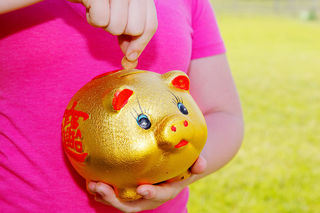
Happiness
Three Ways Money Buys Happiness
Research shows that how we choose to spend money can increase our happiness.
Posted August 17, 2017 Reviewed by Ekua Hagan

Research indicates that money actually can buy happiness — but it depends on how you spend it.
According to David Lee Roth, vocalist for the rock band Van Halen, “Money can't buy you happiness, but it can buy you a yacht big enough to pull up right alongside it.” Similarly, a luxury car commercial states, “People who think that money can’t buy happiness simply aren’t spending it right.”
These quotes contain some truth. Money and happiness are related, but the relationship isn’t simple. For example, it depends on how much money you have. People who are relatively well off don’t get a significant happiness boost from more money.
For example, when family income rises above about $75,000 a year (at least in Canada and the USA), more income doesn’t provide more happiness. Thus, more money can give us more happiness, but only up to a certain income level.
However, more money can lead to more happiness even for the well-to-do, provided those dollars are used on certain things. Here are three ways that research shows you can spend your money to increase your happiness:
- Buy time. Studies indicate that when we spend money to save time, our happiness receives a boost. For example, researchers gave people $40 to spend on two different weekends. When the people were instructed to spend the money in a way that saved them time, they were happier than when they were told to spend the money on material items (for example, clothes or wine). So if your goal is happiness, then consider spending your money to save time. Hire someone to mow your lawn or clean your house, order a pizza and have it delivered, or hire a taxi instead of taking public transit.
- Spend your money on others. Research shows that spending money on others provides a greater happiness boost than spending money on ourselves. For example, researchers gave money to undergraduates, instructing half the students to spend it on themselves (for example, to buy a CD they wanted or to go out for lunch) and the other half to spend it on others (for example, to give money to a charity or a homeless person, or to buy a gift for a friend). Those who spent the money on others were happier than those who spent it on themselves.
- Buy experiences, not things. Though we may get a similar happiness boost immediately after buying an experience or a thing, experiences more effectively increase happiness in the longer term. Part of the reason is that we quickly habituate to the happiness derived from things, whereas we can relive the positive elements of experiences through photos and reminiscences. Interestingly, even before the purchase is fulfilled, experiences can give us more positive emotions than things can. When we anticipate a new car or sofa, for example, we may feel impatient. When we anticipate an activity like traveling or bungee jumping, we tend to feel excited.
But keep in mind that no matter how you spend your money, you should avoid debt. Debt is corrosive to our happiness, undermining it more than we expect.
Beyond spending money, how can we increase our happiness? Check out my video series for some ideas.
References
Dunn, E., & Norton, M. (2014). Happy Money: The Science of Happier Spending

